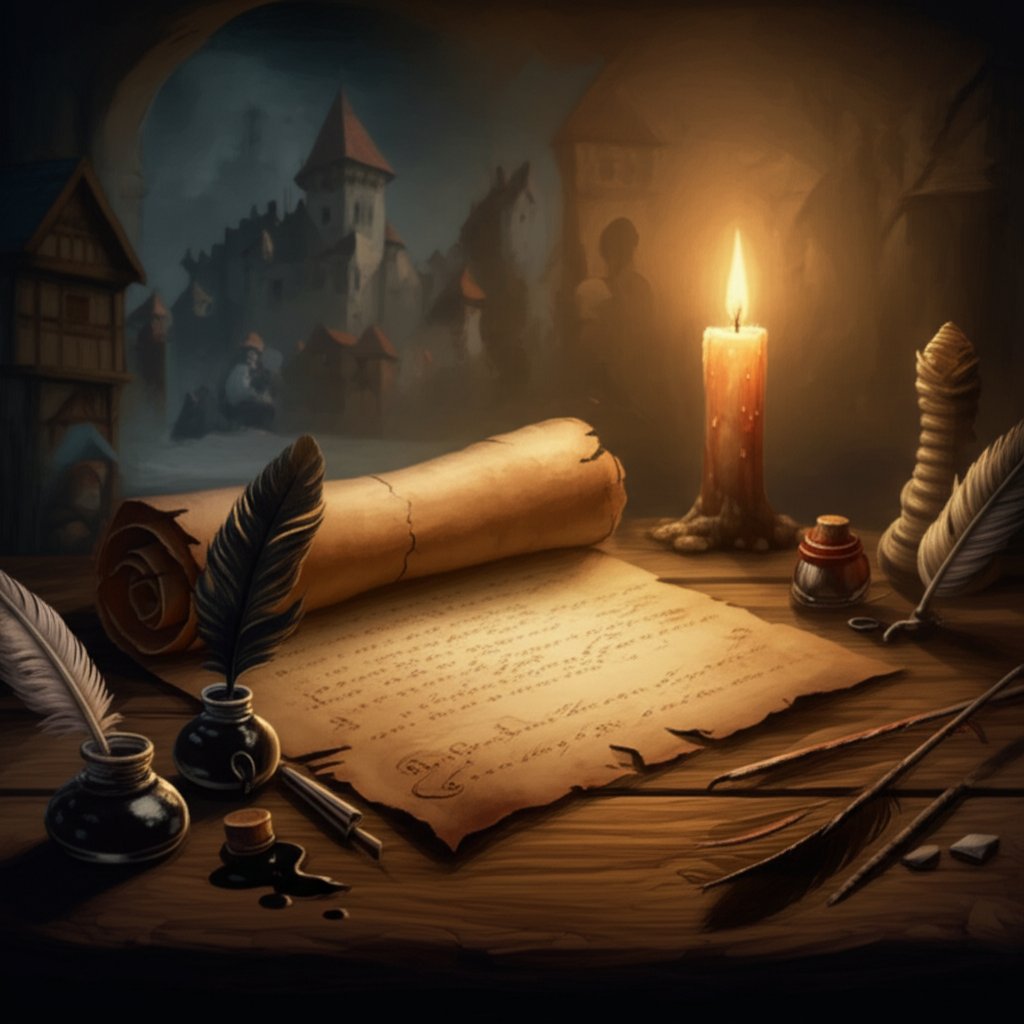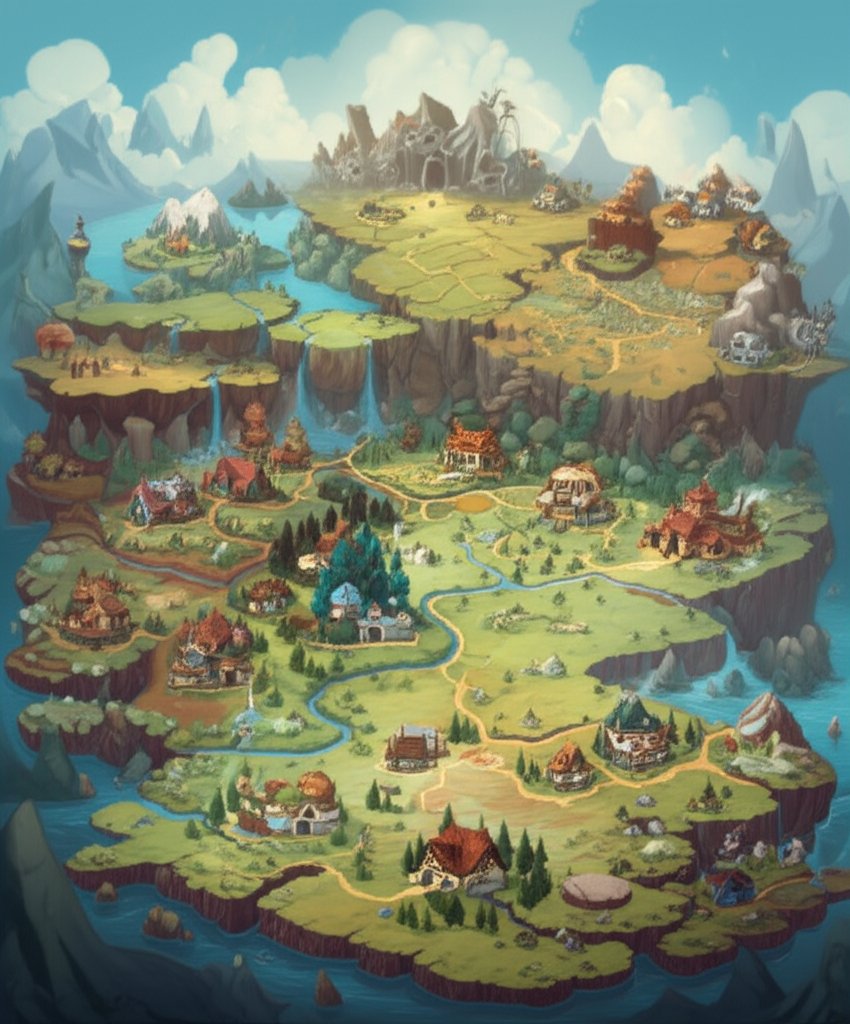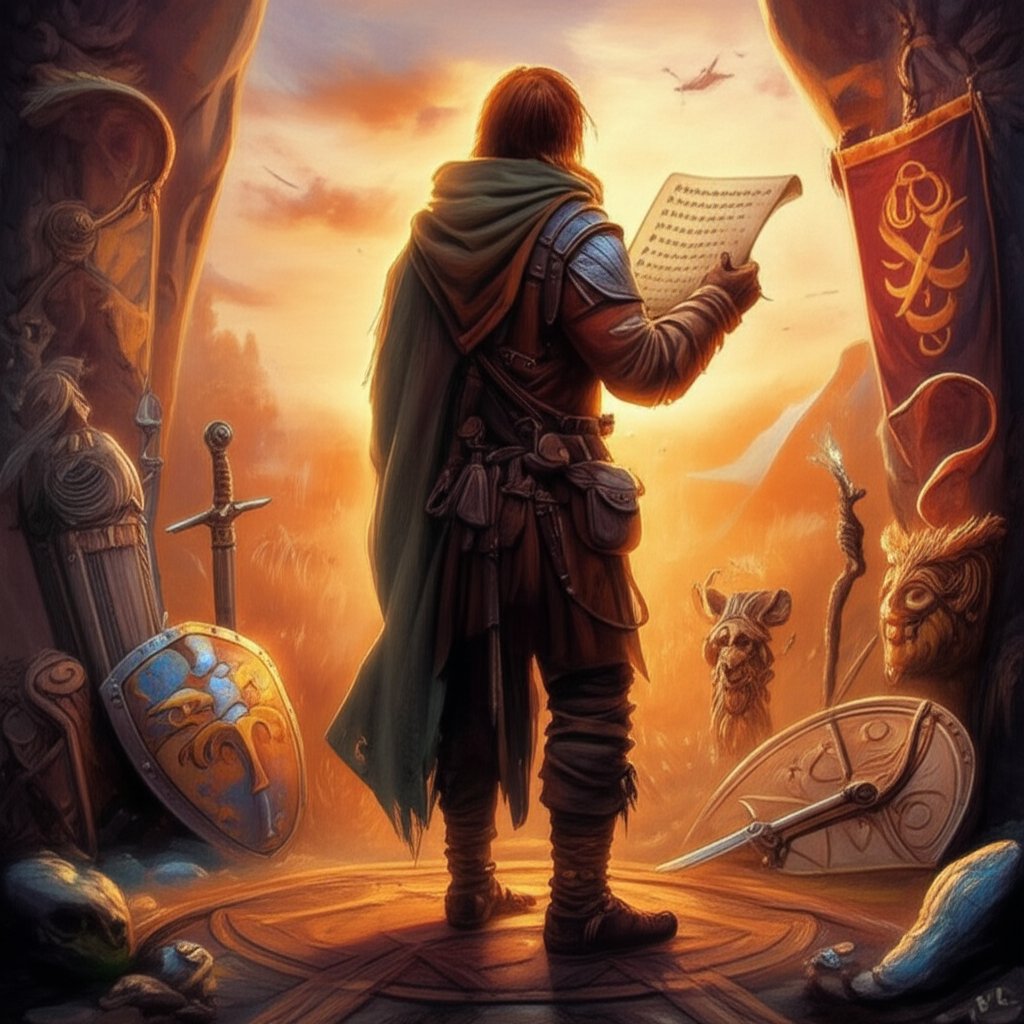Unlocking Creativity with a Medieval Name Generator for Fantasy and History
Have you ever found yourself stuck, searching for the perfect medieval name for a character, town, or kingdom? Whether you’re a fantasy author, a Dungeon Master prepping for your next campaign, a video game player seeking immersive names, or a history enthusiast aiming for authenticity, a medieval name generator can be your secret weapon. But what makes these tools so valuable, and how do they fit into the creative process?
Why Use a Medieval Name Generator?
Imagine you’re building a world inspired by the Middle Ages—a time of knights, castles, bustling marketplaces, and grand kingdoms. The right name can instantly transport your audience to this era, adding depth and believability to your story or game. But coming up with names that sound genuine and unique isn’t always easy. That’s where a medieval name generator fantasy tool comes in. These generators draw from a rich tapestry of historical sources, offering names rooted in Celtic, Latin, Germanic, and other medieval traditions. They help you:
- Quickly generate authentic-sounding names for characters, families, and places
- Save time brainstorming, so you can focus on building your story or campaign
- Discover unique and meaningful names you might not have considered
- Ensure consistency and historical accuracy in your world-building
For example, tools like Writecream’s Medieval Name Generator allow you to specify details such as gender, region, or social class, producing tailored results in just a click. This makes it easy to match the tone and background of your character or location, whether you’re crafting a noble knight, a mysterious village, or a bustling medieval city.
Who Benefits Most from These Tools?
You’ll notice that medieval name generators aren’t just for writers. Here’s who can benefit:
- Fantasy authors seeking to create memorable protagonists, antagonists, or entire lineages
- Dungeon Masters needing a quick list of NPC names or place names for their next session
- Video game designers building immersive, lore-rich worlds
- History buffs looking to add authenticity to reenactments or creative projects
By leveraging a medieval name generator, you can breathe life into your creations and ensure every name fits the setting—whether you’re aiming for historical realism or a touch of fantasy magic.
What to Expect from This Guide
In this comprehensive guide, we’ll walk you through every aspect of medieval name generation. You’ll learn how to:
- Find the perfect first name for your character
- Establish authentic family and lineage names
- Generate gender-specific names for men and women
- Name villages, towns, cities, and kingdoms
- Blend fantasy elements with medieval traditions
- Explore culturally specific medieval names
- Combine multiple generators for unique results
Ready to discover how the right name can transform your world? Let’s dive in and unlock the creative power of medieval name generators together.
Finding the Perfect First Name for Your Character
When you picture a valiant knight, a cunning merchant, or a mysterious healer in your story, what’s the first thing that comes to mind? More often than not, it’s their name. The first name you choose for a character can set the tone for their entire journey—conveying their background, values, and even their place in the world. But how do you land on a name that feels just right? That’s where a random medieval name generator comes into play, offering a treasure trove of inspiration for every type of persona.
Why the First Name Matters in Character Development
Sounds complex? It doesn’t have to be. The first name is more than just a label—it’s a reflection of culture, status, and personality. In the medieval era, names were often chosen for their meanings, origins, or connections to legendary figures. For example, a name like Conrad (meaning “brave counsel”) instantly suggests wisdom and leadership, while Beathan ("child of life") might hint at a character’s innocence or destiny.
When using a name generator, you can start by letting it surprise you with random results—or, if you have a specific vision, filter by gender, origin, or meaning. This approach helps you quickly narrow down options without losing the excitement of discovery.
Categories of Medieval First Names
To make the process easier, consider which category best fits your character. Here’s a quick breakdown to guide your search:
- Common/Traditional Names
- Arthur – Bear; strong man (Celtic)
- Adelaide – Noble (German)
- Conrad – Brave counsel (Old German)
- Winifred – Blessed peace (German/English)
- Joan – God is gracious (Hebrew)
- Obscure or Unique Names
- Badulf – Fight; struggle (Old German)
- Cosgrach – Victor (Old Celtic)
- Yorick – Earth (Old English)
- Isolde – Ice ruler (Old Germanic)
- Zenobia – Life of Zeus (Greek)
- Names with Special Meanings or Origins
- Selena – Moon (Old Roman)
- Magnus – Great (Latin)
- Genevieve – Woman of the race (French/Welsh)
- Leif – Heir; descendant (Old Norse)
- Thora – Thunder (Old Norse)
Imagine your story’s hero named Lothar (famous army) or your enigmatic healer called Eirunn (happiness; gift). Each choice brings a different flavor and depth to your narrative.
How to Use a Random Medieval Name Generator Effectively
Ready to get started? Here are some practical tips for making the most of these tools:
- Start with a “random” spin to see what stands out—sometimes the best names are unexpected.
- Filter by gender if you want historically accurate medieval names male or female options.
- Explore origins—Celtic, Germanic, Latin, and Norse names each carry unique sounds and histories.
- Look for names whose meanings align with your character’s traits or storyline.
- Don’t be afraid to mix and match or modify names for a unique twist.
By thoughtfully selecting a first name, you’ll lay the groundwork for a memorable character. Next, we’ll see how pairing that name with an authentic family name can further enrich your world and provide even more storytelling possibilities.
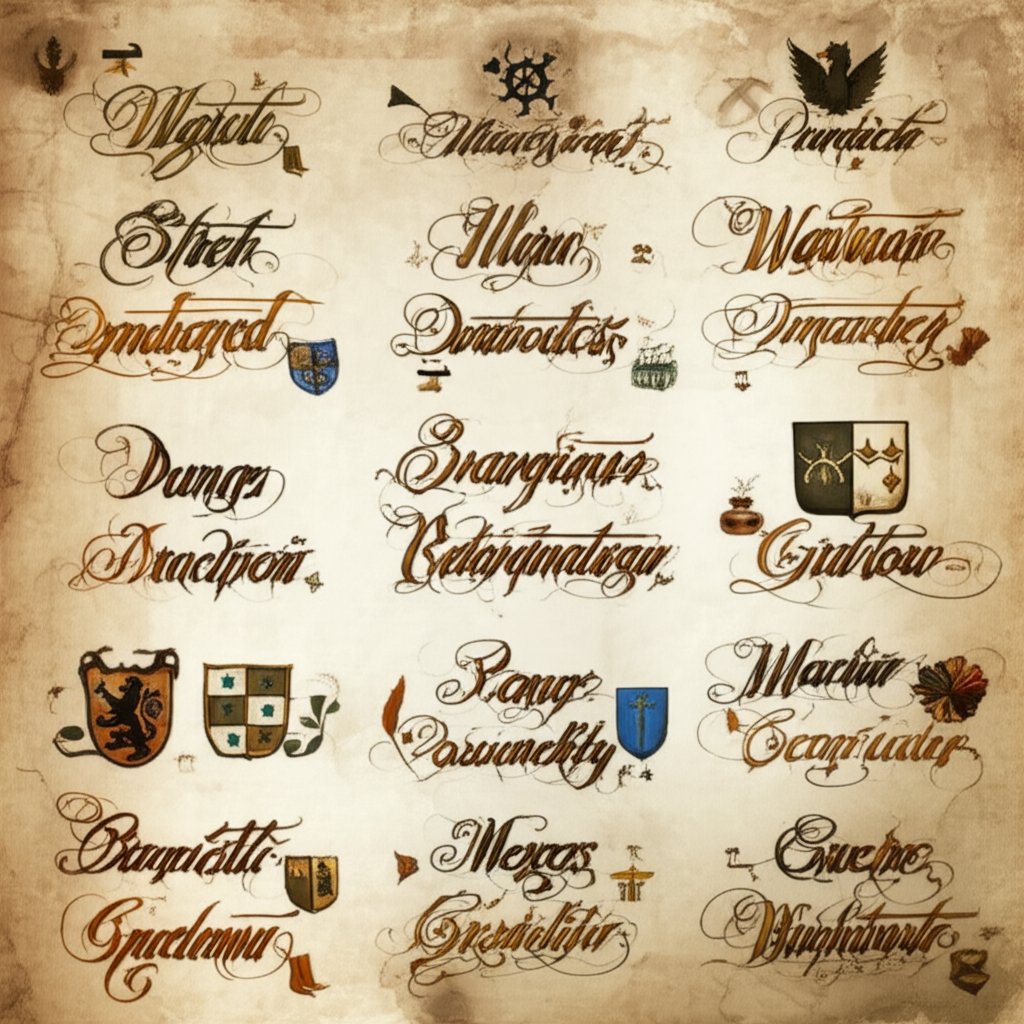
Establishing a Lineage with Authentic Family Names
When you hear the name "Richard Baker" or "Joan of Warwick," what comes to mind? Instantly, you’re transported to a time when names were more than just labels—they were windows into a character’s family, profession, and even hometown. Choosing the right surname can add layers of depth to your characters, making them feel rooted in their world. But how do you find a last name that’s both authentic and meaningful? That’s where a medieval last name generator or medieval family name generator can be a game-changer.
Why Surnames Matter in Medieval Storytelling
Sounds simple? In reality, surnames in the Middle Ages carried significant social weight. They often revealed a person’s ancestry, trade, or place of origin, and could even hint at a physical trait or personality. By the end of the medieval era, surnames had become a fixture of family tradition, helping to distinguish individuals within growing communities and leaving a legacy for future generations.
Types of Medieval Surnames
Medieval surnames generally fell into four main categories, each offering a different glimpse into a character’s background. Here’s a breakdown, along with real examples to help you see the differences at a glance:
| Type | Description | Example Surnames | Meaning/Origin |
|---|---|---|---|
| Patronymic | Based on the father’s given name, showing lineage | FitzAlan, Hughes, FitzOsbern | "Fitz" means "son of" (Norman); "Hughes" means "son of Hugh" |
| Occupational | Reflects the family’s trade or craft | Baker, Carpenter, Brewer, Shepherd, Mercer | Baker = bread maker; Carpenter = woodworker; Mercer = textile trader |
| Locative | Indicates a place of origin or residence | of Warwick, Ashdown, de la Pole, Kirk | "of Warwick" = from Warwick; "Ashdown" = dweller on ash-tree hill; "Kirk" = lives near a church |
| Nickname/Descriptive | Describes a physical trait or characteristic | Browne, Bigge, le Blanc | Browne = brown-haired; Bigge = big/strong; le Blanc = the white (French) |
How to Choose the Right Medieval Surname
Imagine your character is a humble miller’s daughter—"Alice Miller" or "Alice Webb" (weaver) instantly paints a vivid picture. Or perhaps you want to highlight noble origins: "Richard Fitzroy" (son of the king) or "Joan de Lacy" (from the Lacy family) add gravitas and historical flavor (source).
- For working-class or commoner backgrounds, occupational surnames like Cooper (barrel maker), Shepherd, or Taylor (clothes maker) are ideal.
- To indicate regional ties, try locative names—"of Benwick," "Ashdown," or "de la Pole."
- If you want a name that stands out, descriptive surnames such as Grosseteste ("big head") or Rowntree (lives by the rowan tree) can add a unique twist.
- For characters of noble birth, patronymic names or those linked to famous families ("FitzAlan," "de Montfort") can signal prestige.
When using a medieval family name generator, you can filter by type or simply spin for inspiration. Don’t be afraid to mix and match—pairing a strong first name with a surname that fits your character’s story will help your world feel more lived-in and believable.
Now that you’ve anchored your character with an authentic last name, it’s time to consider how gender-specific naming conventions can further enrich your cast and add historical accuracy to your storytelling.
Generating Names for Medieval Men and Women
When you picture a medieval hero or heroine, do you imagine bold, sonorous names like Eadweard or Æthelflæd? Or perhaps you wonder why some names just “sound” medieval, while others feel out of place? Choosing the right gender-specific name is more than a matter of preference—it’s about capturing the authentic flavor of the era. That’s where tools like a medieval male names generator or medieval female name generator come in handy, especially if you want to ensure historical accuracy or simply need a burst of inspiration.
Why Gender Matters in Medieval Naming
Sounds simple, right? But in the Middle Ages, gender played a central role in how names were formed, chosen, and perceived. Male and female names often followed distinct patterns, reflecting cultural values, religious influences, and linguistic traditions. For example, the Anglo-Saxon nobility favored compound names, with gender-specific endings to signal whether a name belonged to a man or a woman (source).
Stylistic Differences Between Male and Female Names
Let’s break down the main trends you’ll notice when using a medieval name generator for gendered names:
- Compound Structure: Many names—especially among the nobility—were built from two meaningful parts. The first element was often shared, but the ending indicated gender.
- Male Name Endings: Look for endings like -stan (stone), -ric (power), -weard (guardian), -wine (friend), and -ræd (advice).
- Female Name Endings: Common suffixes included -flæd (dwelling), -thryth (strength), -gi(e)fu (gift), -wynn (joy), and -burh (castle, town).
- Religious and Classical Influence: Both genders drew from Biblical and Latin sources, especially in royal and noble circles. Names like Elizabeth (female) or Edward (male) reflect these roots.
- Regional Variations: Norse, Celtic, and Germanic traditions introduced unique sounds and meanings, many of which were gendered as well.
Examples of Gender-Specific Medieval Names
| Male Names | Female Names | Origin/Meaning |
|---|---|---|
| Eadweard | Æthelflæd | "Blessed guardian" (male); "Noble dwelling" (female), Anglo-Saxon |
| Badulf | Aileas | "Fight; struggle" (male), Old German; "Noble" (female), Old Celtic |
| Conrad | Bríd | "Brave counsel" (male), Old German; "Exalted one" (female), Old Celtic |
| Ivor | Groa | "Yew bow; warrior" (male), Old Norse; "To grow" (female), Old Norse |
| Stephanus | Chrysanta | "Crown" (male), Old Roman; "Golden flower" (female), Old Roman |
Tips for Finding Historically Accurate and Unique Names
- Mix and Match Elements: Combine traditional prefixes (Ead-, Æthel-, Wulf-, Byrht-) with authentic gendered endings for a name that fits the era.
- Explore Lesser-Known Variants: Don’t limit yourself to popular names like William or Joan. Try unique options such as Beathan (male, "child of life") or Thilde (female, "might; fight").
- Consider Regional and Linguistic Roots: Names from Old Norse, Celtic, and Germanic backgrounds offer a wide range of distinctive sounds and meanings for both genders.
- Use a Medieval Male or Female Name Generator: These tools allow you to filter by gender, ensuring your names match the conventions of the period and your character’s role in the story.
- Look for Names with Symbolic Meaning: Many medieval names were chosen for their significance—select one that echoes your character’s traits or destiny.
By paying attention to gendered naming conventions and drawing from authentic sources, you’ll create characters that feel true to their time and setting. Next, we’ll explore how to extend this authenticity beyond individuals, crafting evocative names for the towns and villages that bring your medieval world to life.
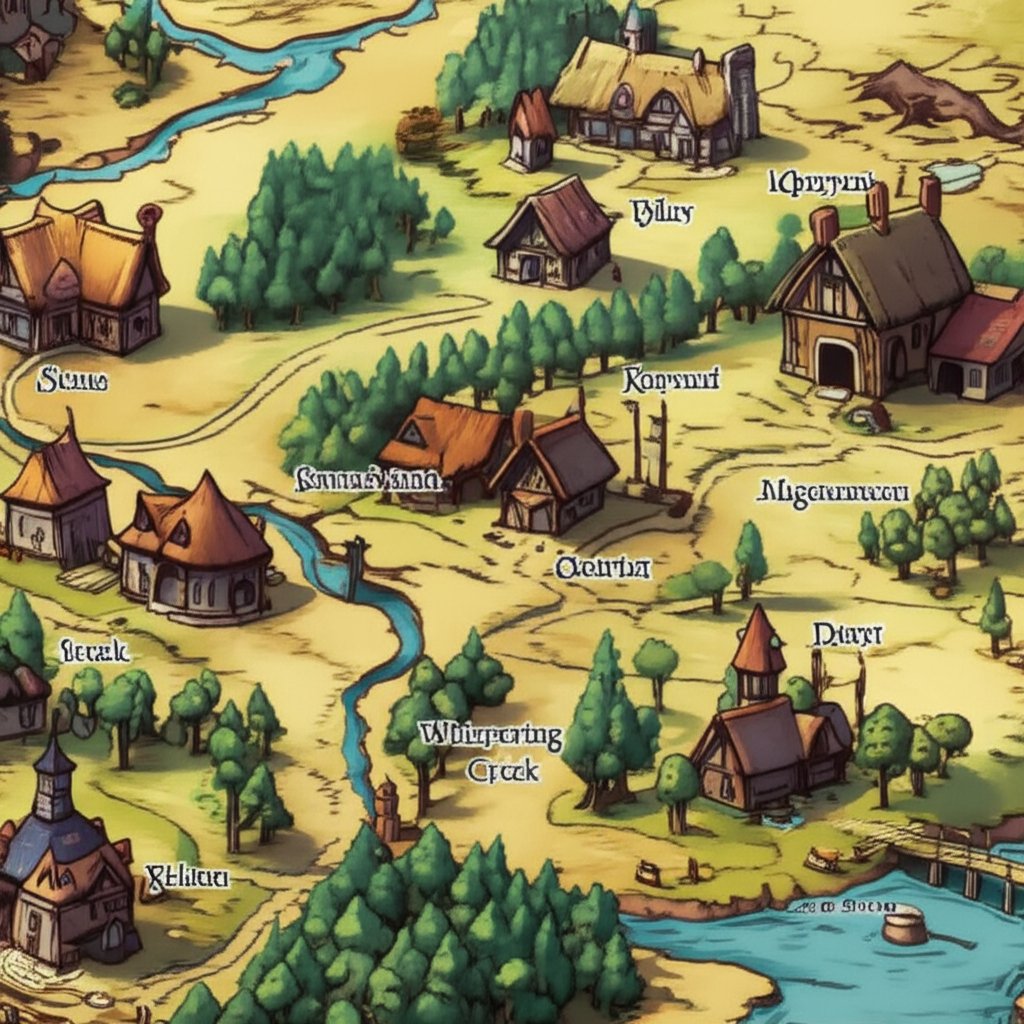
Naming Your Setting from Humble Villages to Bustling Towns
Ever wondered why some fictional towns instantly feel real, while others sound forced or generic? The secret often lies in the name—those few syllables can evoke landscape, history, and community in an instant. If you’re building a medieval world, whether for a novel, game, or campaign, using a medieval town name generator or medieval village name generator can help you craft names that breathe life into your settings. But how do you ensure your settlements feel authentic and memorable?
How Geography, Lore, and Function Shape Medieval Place Names
Sounds complicated? It’s easier than you think. Medieval place names were rarely random—they were rooted in the land, local legends, or the daily life of their inhabitants. Names often described:
- Geography: Features like rivers, hills, forests, or valleys (e.g., Riverton, Oakwood, Hillstead)
- Lore or History: Events, legendary figures, or ancient customs (e.g., Dragon’s Hollow, Saintsbury)
- Function: The main trade, resource, or role of the settlement (e.g., Millford, Bakerstown, Marketfield)
In the Middle Ages, names served as practical signposts—helping travelers, traders, and locals navigate a world without maps or GPS (source). A name like "Ashford" told you there was a ford by ash trees, while "Kingsbridge" hinted at royal connections or a significant crossing.
Common Components in Medieval Town and Village Names
When you use a generator, you’ll notice recurring elements. These aren’t random—they’re based on linguistic roots that shaped real medieval places. Here are some of the most common:
| Component | Meaning | Example Names |
|---|---|---|
| -ton / -tun | Farm, settlement, or enclosure | Brighton, Taunton, Appleton |
| -ham | Homestead, village | Rotherham, Nottingham, Oldham |
| -ford | River crossing | Oxford, Ashford, Guildford |
| -bury / -borough | Fortified place, town | Canterbury, Banbury, Peterborough |
| -wick / -wich | Settlement, trading place | Norwich, Ipswich, Berwick |
| -field / -leigh / -ley | Clearing, meadow, field | Sheffield, Hadleigh, Beverley |
| -stead / -stow | Place, site, or holy place | Hampstead, Stowmarket |
For a more exhaustive list of these elements and their meanings, check resources like the List of generic forms in place names in the British Isles.
Strategies for Generating and Selecting the Best Settlement Names
Ready to try it yourself? Here’s a step-by-step approach for using a medieval town name generator or medieval village name generator to craft the perfect name:
- Start with a Generator: Use a tool that offers a variety of results. For example, some generators provide a list of ten random names at a time, allowing you to refresh until something clicks.
- Identify the Core Element: Decide whether your settlement’s name should highlight geography (e.g., Greenhill), function (Marketstead), or lore (Wolfsbane).
- Mix and Match Components: Combine different roots and suffixes for a unique twist—think Stoneford or Willowbury.
- Check for Authenticity: Cross-reference your generated names with real medieval place-name elements to ensure they sound plausible.
- Consider Pronunciation and Flow: Say the name aloud. Does it roll off the tongue? Does it fit the tone of your world?
Imagine a story set in "Oakenshire," a peaceful village by the woods, or "Redwaterford," a bustling riverside town. Each name not only locates your readers but also hints at the landscape, history, or culture of your world.
With your towns and villages named, you’re ready to tackle the next level: giving identity and grandeur to mighty cities and kingdoms. Let’s continue our journey into the heart of medieval world-building.
Forging an Identity for Mighty Cities and Kingdoms
When you imagine a legendary capital or a sprawling kingdom at the heart of your medieval world, what’s the first thing you picture? Is it the towering walls, the bustling markets—or is it the name that lingers in your mind, setting the tone for everything that follows? Naming large entities like cities and kingdoms is a crucial step in world-building. A strong name not only gives your setting weight and authority but also weaves in layers of history, culture, and intrigue. That’s where a medieval city name generator or medieval kingdom name generator becomes indispensable.
Why Gravitas and Cohesion Matter in Naming
Sounds challenging? It can be—but with the right approach, you can create names that resonate with readers or players long after the story ends. City and kingdom names often serve as the centerpiece of your narrative, echoing through legends, songs, and political intrigue. The best names evoke a sense of place and history, hinting at the culture, geography, or founding myths that shaped them.
- Gravitas: A name like "Stormhold" or "Lion’s Landing" immediately suggests power, resilience, or a legendary past.
- Cohesion: Consistent naming conventions across your world—using similar prefixes, suffixes, or linguistic roots—help tie your cities and kingdoms together, making your setting feel intentional and lived-in.
Strategies for Generating Powerful City and Kingdom Names
So, how do you craft names that feel both memorable and authentic? Here are some practical methods, inspired by both real-world medieval history and fantasy traditions:
- Use Historical and Linguistic Roots: Draw from Old English, Norse, Latin, or French elements. For example, city names like "Rouen" or "Carcassonne" evoke real medieval places, while "Brazen Peak" or "Northmaw" blend descriptive imagery with historical flavor.
- Incorporate Geography and Lore: Let the city or kingdom’s landscape, founding event, or legendary figure influence the name. Names like "Greenstar" (from a meteorite event) or "Last Watch" (from a pivotal battle) tell a story before a single word of narrative is written.
- Mix and Match Prefixes and Suffixes: Combine classic components for a unique result. Suffixes like -hold, -gate, -haven, -gard, or -heim suggest strength, safety, or heritage. Try pairing with evocative prefixes—"Ironhold," "Starhaven," or "Frostgard."
- Reflect Culture and Identity: Consider the values, strengths, or even fears of the city or kingdom. Dwarven realms might use sturdy, earthy names ("Grizzlehold"), while elven kingdoms favor melodic, ethereal sounds ("Lórien Gleam").
- Take Inspiration from Real and Fictional Examples: Study historical kingdoms—like the Córdoba Caliphate or the Kingdom of Wessex—or iconic fantasy cities such as "Minas Tirith" or "Winterfell" for structure and inspiration.
Tips for Using a Medieval City or Kingdom Name Generator Effectively
- Start with a theme—geographical, cultural, or mythological—and input related keywords into your generator.
- Adjust the length and complexity to fit the tone of your world; sprawling empires may warrant grander, multi-syllabic names.
- Experiment by combining generated names or tweaking syllables for originality.
- Check for pronunciation and memorability. Say the name aloud—does it roll off the tongue? Does it suit the stature of a capital or kingdom?
- Gather feedback from others. Sometimes an outside perspective can highlight whether a name fits the gravitas you’re aiming for.
Imagine a city called "Sandvik," rooted in a history of whale hunting and coastal trade, or a kingdom named "Celesterra," evoking images of floating islands and celestial wonders. Each name becomes a gateway to deeper stories and richer world-building. By leveraging a medieval city name generator or medieval kingdom name generator, you’ll find endless inspiration—and ensure your most important places are as unforgettable as your heroes.
With your cities and kingdoms named, you’re ready to blend these medieval traditions with a touch of magic and fantasy, taking your world-building to the next level.
Infusing Magic with Fantasy Style Medieval Names
When you’re crafting a magical world, the right name can transform a simple character or place into something truly unforgettable. But how do you create names that feel both fantastical and grounded in medieval tradition? That’s where a medieval fantasy name generator becomes your best ally, helping you strike the perfect balance between authenticity and creativity.
Why Blend Medieval and Fantasy Naming Styles?
Sounds tricky? It doesn’t have to be. The most memorable fantasy names—think Gandalf, Lothlorien, or Tyrion—often draw from real medieval roots, then add a twist of the otherworldly. Authors like J.R.R. Tolkien and George R.R. Martin built immersive universes by weaving together Old Norse, Welsh, Latin, and other languages, giving names a sense of history and magic.
Using a fantasy name generator inspired by medieval conventions lets you:
- Maintain consistency with your world’s culture and lore
- Ensure names sound plausible (not just random syllables)
- Quickly generate options for humans, elves, dwarves, and magical beings
- Create names that are easy to pronounce and remember
Tips for Creating Names for Non-Human or Magical Characters
Imagine naming a dragon-riding sorcerer, a woodland elf, or a mystical city. How do you keep names unique, but still believable? Here are some proven strategies:
- Combine Real-World Roots: Start with medieval names or words from Old Norse, Celtic, or Latin. Tweak spellings or add fantasy-inspired elements for a fresh sound. For example, "Eirunn" (Old Norse for happiness) could become "Eirunnael" for an elven queen.
- Mix Prefixes and Suffixes: Use classic medieval components—like "Ael-", "Thorn-", "-wyn", or "-ric"—and pair them with fantasy syllables. This method creates names that feel both ancient and magical.
- Play with Linguistic Patterns: Elven names might favor flowing vowels and soft consonants (e.g., "Lirael", "Aelithor"), while dwarven or orcish names use harsher sounds (e.g., "Grimnar", "Durogath").
- Draw from Nature and Myth: Medieval names often referenced animals, plants, or celestial bodies. Adapt these for fantasy—"Selena" (moon) could inspire "Selenastra" for a moon priestess.
- Use Portmanteau and Word Fusion: Merge two meaningful words to create something new, like "Stonehaven" or "Starfall" for places, or "Fyrendelle" (from "fyr" for fire and "delle") for a magical character (source).
- Keep Pronunciation in Mind: Test your names aloud. If they’re too complicated, readers may stumble and lose immersion. Simplicity often leaves a stronger impression.
Actionable Steps to Generate Fantasy-Style Medieval Names
- Start with a list of medieval names or use a generator for inspiration.
- Identify your character’s culture, race, or magical traits—let these guide your choice of sounds and structures.
- Experiment by adding or swapping prefixes/suffixes. For example:
- "Ael" + "wyn" = Aelwyn
- "Dru" + "gar" = Drugar
- "Thorn" + "helm" = Thornhelm
- Incorporate elements from myth or nature for deeper meaning.
- Refine your favorites, ensuring they fit your world’s linguistic style.
Examples: Bringing Fantasy Names to Life
- Elven Mage: Liraelwyn ("lira" = song, "wyn" = joy)
- Dwarven Warrior: Grimdrik ("grim" = fierce, "drik" = ruler)
- Ancient City: Starhaven ("star" + "haven")
- Forest Spirit: Thalindor ("thal" = valley, "dor" = land)
By blending medieval naming conventions with fantasy creativity, you’ll craft names that not only sound magical, but also feel rooted in a larger, believable world. Ready to take your world-building even further? Next, we’ll explore how drawing from specific cultures can add depth and authenticity to your naming process.
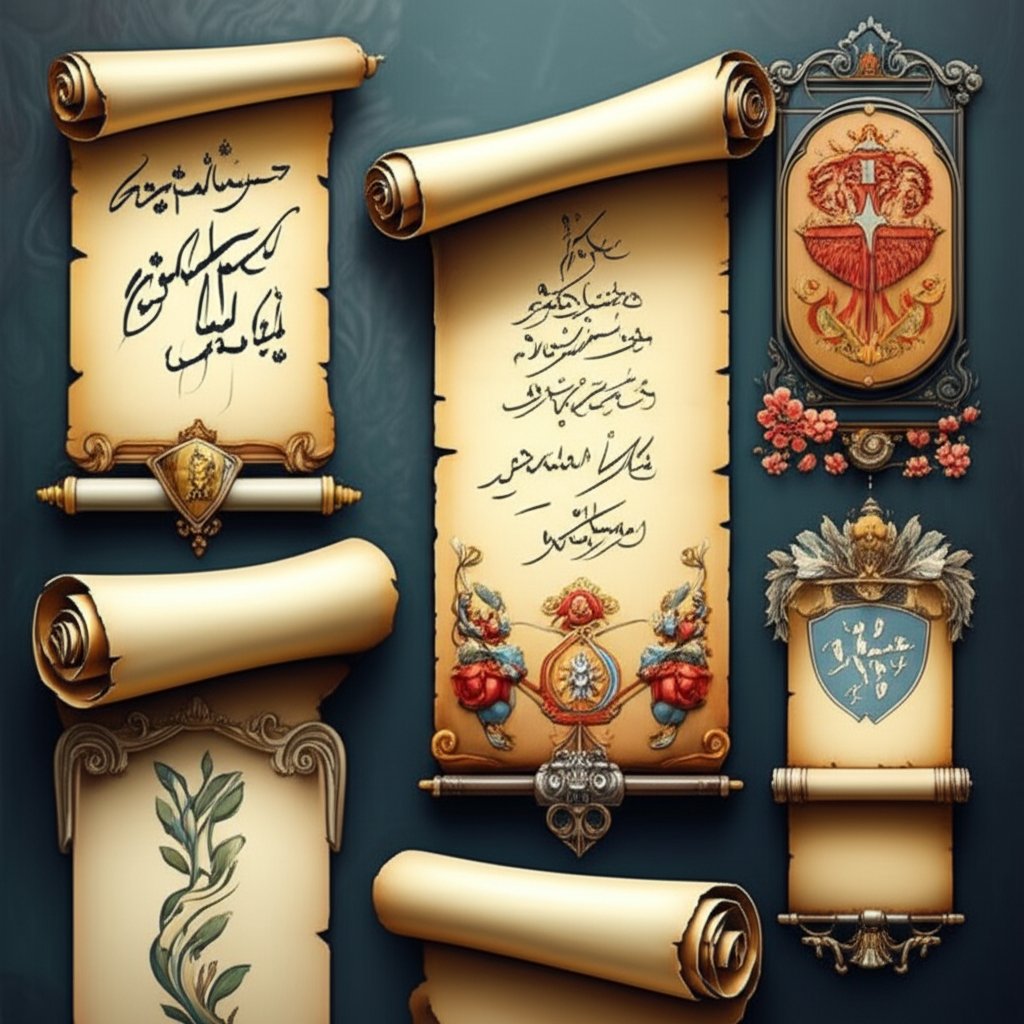
Exploring Names from Specific Medieval Cultures
When you’re building a medieval world, do you ever wonder why some names instantly evoke a sense of place and history, while others fall flat? The secret often lies in cultural specificity. Using an english medieval name generator or a french name generator medieval can make the difference between a generic name and one that truly immerses your audience in a believable setting. But how exactly do these tools enrich your storytelling—and what should you look for when choosing names from different cultures?
Why Cultural Accuracy Matters in Medieval Name Generation
Imagine you’re crafting a tale set in the rolling hills of medieval England, or amid the chateaux and bustling markets of medieval France. Would a character named "Hiroshi" or "Giovanni" feel at home there? Probably not. Names rooted in the right culture instantly ground your characters and places, signaling their background, language, and even social status. This attention to detail doesn’t just add flavor—it builds trust and immersion for your readers or players.
- Consistency: Culturally accurate names help maintain logical coherence across your world.
- Depth: Names with real historical roots carry stories, meanings, and connotations that enrich your narrative.
- Variety: Drawing from multiple cultures allows you to create diverse casts and settings, each with their own unique identity.
Using English and French Medieval Name Generators
Sounds complex? It’s actually straightforward with the right tools. Here’s how you can leverage culturally specific generators for richer world-building:
| Generator | Example Names | Origins & Meanings |
|---|---|---|
| English Medieval Name Generator | Wymond, Hawise, Elric, Winifred | Old English roots; often reflect traits (e.g., Winifred = "blessed peace") or familial ties |
| French Name Generator Medieval | Aymeri, Guiscard, Vauquelin, Enguerran | Old French/Norman roots; frequently tied to nobility or legendary figures (e.g., Guiscard = "wise, brave") |
For example, "Aymeri" is a hero from medieval French romance, while "Wymond" comes from Old English elements meaning "battle protection" (source). These names don’t just sound authentic—they are authentic, carrying centuries of linguistic and cultural heritage.
Tips for Enhancing World-Building with Cultural Names
- Match Names to Geography: Use English names for characters from the British Isles, French names for those from continental Europe, and so on.
- Consider Social Status: Noble characters might have names like "Enguerran" or "de la Roche," while commoners might be "Alice Miller" or "Jean le Blanc."
- Blend Naming Conventions: For border regions or multicultural settings, mix elements from neighboring cultures for added realism.
- Reference Real History: Many medieval names were borne by saints, nobles, or legendary figures. Researching these can inspire names that feel both original and plausible.
Going Beyond Europe: The Value of Culturally Diverse Name Generators
But what if your world draws inspiration from Asian or other non-European cultures? That’s where tools like the Chinese Name Generator become invaluable. Just as you’d use an english medieval name generator for a British-inspired kingdom, this tool helps you create authentic, meaningful names for Asian-inspired settings. It’s not just about translation—it’s about capturing the right sounds, meanings, and cultural nuances, whether you’re naming a scholar, a warrior, or an entire dynasty.
By studying how a Chinese Name Generator combines characters to express concepts like strength, beauty, or tradition, you can even develop more sophisticated naming systems for your own fictional cultures. This approach moves your world-building beyond stereotypes and into realms of greater depth and respect.
"The more specific your names, the more universal your world becomes."
In summary, leveraging culturally accurate name generators doesn’t just add authenticity—it opens doors to richer, more immersive storytelling. Next, we’ll see how combining outputs from multiple generators can help you create truly unique identities, blending traditions and inventiveness for unforgettable characters and places.
Combining Generators to Create Unique Identities
Ever feel like every name you generate sounds just a little too familiar? Or maybe you want a character whose identity stands out—one that blends cultures, histories, or even genres? That’s where combining results from different name generators transforms your creative process. Whether you’re using a medieval surnames generator, a medieval name generator based on name, or exploring culturally specific tools, mixing and modifying generated names opens up endless possibilities for truly original identities.
Why Combine Name Generators?
When you use just one generator, you get names rooted in a single tradition or style. But what if your story needs a borderland hero with both English and French ancestry? Or a fantasy city where East meets West? By blending outputs from multiple generators, you can:
- Create hybrid names that reflect mixed heritage or multicultural settings
- Break free from overly common or predictable results
- Tailor names to fit complex backstories, unique world lore, or fantasy races
- Develop naming conventions that feel both authentic and inventive
Step-by-Step: Crafting Unique Names from Multiple Sources
Sounds complicated? Let’s break it down into actionable steps. Here’s how you can combine generators for maximum creativity:
- Gather Options: Start by generating lists of first names and surnames from different sources—medieval, fantasy, cultural, or even modern generators.
- Mix and Match: Pair first names from one tradition with surnames from another. For example, an Old Norse first name like "Egil" with a French-inspired surname like "de la Roche" creates instant intrigue.
- Modify and Merge: Don’t be afraid to tweak spellings, swap syllables, or blend two names. "Aelric" and "Thorne" could become "Aelthorne."
- Use a Medieval Name Generator Based on Name: Some tools let you input a base name and generate variants or related surnames, helping you build family lines or regional variants with ease.
- Check for Consistency: Make sure the resulting name fits your world’s linguistic and cultural patterns. Adjust endings, prefixes, or suffixes for harmony.
Creative Techniques for Inventing Names
| Technique | Description | Example |
|---|---|---|
| Hybridization | Combine elements from two or more names or languages | "Wynfrid" (English) + "Vauquelin" (French) → "Wynquelin" |
| Portmanteau | Fuse syllables from different names | "Elric" + "Ailith" → "Elithric" |
| Suffix/Prefix Addition | Add or swap classic medieval prefixes or suffixes | "Giselle" + "-wyn" → "Gisellewyn" |
| Translation | Translate a name’s meaning into another language and adapt it | "Wolf" (English) → "Loup" (French) → "Loupard" |
Expanding Your Toolkit: The Value of Diverse Generators
Don’t limit yourself to European medieval names. If your world draws on Asian influences, or you want to add a new dimension to your cast, tools like the Chinese Name Generator are invaluable. This generator doesn’t just translate Western names—it creates authentic, meaningful Chinese names, complete with cultural context and sometimes even suggested backstories. By studying how it combines characters to express concepts like strength, beauty, or tradition, you can enrich your own naming conventions, whether for a scholar in a fantasy empire or a warrior from a distant land.
Imagine a character named "Hao Wenric," blending a Chinese given name with a Germanic medieval surname, or a city called "Jinborough," fusing Chinese and English roots. These hybrid names immediately signal cultural depth and narrative possibility, moving your story beyond clichés.
"The art of naming is the art of world-building—each name is a story waiting to unfold."
By combining outputs from various generators—and including specialized tools like the Chinese Name Generator—you’ll build a cast and setting as diverse and dynamic as the stories you want to tell. Next, we’ll wrap up with a recap and empower you to start your own creative journey.

Conclusion
When you look back on the journey we’ve taken, what stands out? Maybe it’s the thrill of discovering a name that perfectly fits your hero, or the satisfaction of building a town with a name that feels as real as any on a map. Throughout this guide, we’ve explored the versatility and creative potential of the medieval name generator—a tool that’s as useful for fantasy writers and game masters as it is for anyone seeking authenticity in their world-building.
Recapping the Power of Medieval Name Generators
- Authenticity at Your Fingertips: We saw how generators draw from historical roots—Celtic, Latin, Germanic, and more—to offer names that feel lived-in and true to the medieval era.
- Flexibility for Every Need: Whether you’re naming a humble villager, a mighty kingdom, or a magical city, these tools help you find options for every genre and setting.
- Creative Freedom: By mixing and matching first names, surnames, and place names—or by blending outputs from multiple generators—you can craft truly unique identities that break free from clichés.
- Cultural Depth: We explored how using culturally specific tools, like English, French, or even Chinese name generators, can add richness and realism to your characters and worlds.
Tips for Bringing Your Medieval Fantasy Names to Life
- Don’t be afraid to experiment—try out different generators, combine results, and tweak names until they feel just right.
- Let the meaning behind a name inspire your character’s story or the history of your setting.
- Consider the culture, geography, and era you want to evoke, using specialized tools for English, French, or Asian-inspired worlds.
- For Asian-inspired settings, explore resources like the Chinese Name Generator—it’s designed to create culturally authentic names and can serve as a model for developing your own naming systems.
"Each name you choose is a building block in the story you’re telling—make every choice count."
Your Creative Journey Starts Now
Imagine the possibilities: a cast of characters whose names echo with history, places that feel as if they’ve always existed, and worlds that invite readers or players to lose themselves in the details. The right name can spark an entire story or bring a new dimension to your game. With the help of a medieval name generator and the strategies you’ve learned here, you’re ready to breathe life into your next project.
So, why wait? Start experimenting with medieval fantasy names, blend traditions, and let your creativity run wild. Whether you’re writing a novel, designing a campaign, or building a digital world, the perfect name is just a click away. Begin your adventure today—and watch your medieval world come alive, one name at a time.
Frequently Asked Questions about Medieval Name Generators
1. What is a medieval name generator and how does it work?
A medieval name generator is an online tool that creates authentic-sounding names inspired by the Middle Ages. It draws from historical languages and naming conventions, allowing users to generate names for characters, families, towns, or kingdoms. Many generators offer filters for gender, region, or meaning, making it easy to find names that fit your story or game world.
2. How can I find unique medieval names for my fantasy characters?
To find unique medieval names, use a random medieval name generator and experiment with different filters such as gender, origin, or meaning. You can also mix and match first names and surnames from different cultures or modify generated names for originality. Combining elements from multiple generators or adding fantasy-style prefixes and suffixes can help you create memorable, distinctive names.
3. Why is cultural accuracy important when generating medieval names?
Cultural accuracy ensures that names align with the setting and background of your world, enhancing immersion and believability. Using English, French, or even Chinese name generators lets you match names to specific regions or cultures, adding depth and realism to your characters and places. This attention to detail helps readers or players connect with your world.
4. Can I use a medieval name generator for non-European or Asian-inspired settings?
Yes, you can use culturally specific tools like the Chinese Name Generator to create authentic names for Asian-inspired settings. This tool generates names with genuine meanings and cultural significance, helping you develop characters and places that respect and reflect the traditions of the culture you're drawing from.
5. What are the benefits of combining outputs from different name generators?
Combining names from various generators allows you to create hybrid or unique identities, reflecting mixed heritage or multicultural settings. This approach enhances originality, helps avoid clichés, and supports complex world-building by blending traditions, languages, and styles for characters, families, or places.
